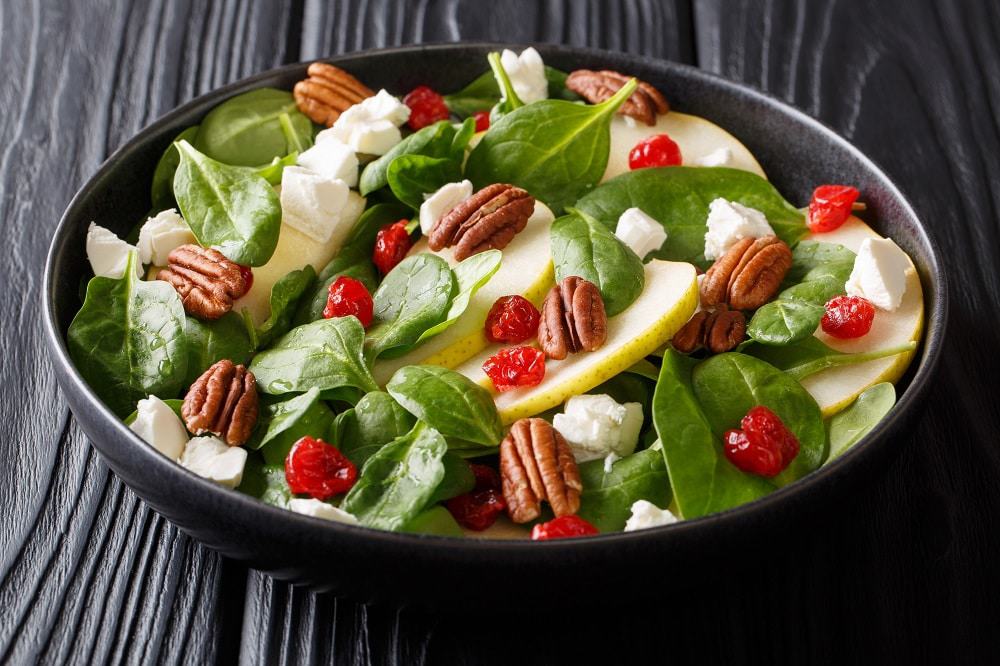Impact of Nutrition on Athletes
Athletes need good nutrition. They can’t thrive without it. When an athlete is feeding their body with the proper food and nutrients they need for fuel, they can achieve much greater results. If they aren’t feeding their body properly, then their physical activity and overall performance can suffer, and they may not recover from heavy training as quickly or as easily. Organic catering provides an easy solution to ensure that athletes are getting the good quality food that they need to perform well and live a well-balanced and healthy life.
What Does Proper Nutrition Look Like for an Athlete?
Obviously, this question can vary depending on who you ask. But most experts can agree that one of the biggest factors in helping athletes perform at optimal levels, is making sure they are consuming a diet that is well-balanced and provides plenty of variety. Some athletes tend to get stuck in a rut and consume the same five or ten foods, day after day. While they might achieve some positive results doing this, it’s not sustainable over the long-term and may actually harm performance and health if continued indefinitely.
This is because nutrient levels can suffer if you aren’t feeding your body a variety of different foods from different sources to obtain those needed nutrients. Our bodies are wonderful machines that pull nutrients from almost everything, but they have to be fed foods that possess those nutrients in order to do that. Of course, that doesn’t mean you can’t have a bowl of ice cream on occasion, just keep in mind that if you do choose to eat something with very little nutritional value, make sure it’s well worth it in the pleasure department! There has to be some kind of dividend to the food you’re putting in your body.

By consuming a varied and balanced diet, it makes it easier for an athlete to ensure they are getting a good ratio of carbohydrates, protein, and healthy fats. All three components fuel the body and the brain in different ways, and each is equally as important for peak performance. Some experts recommend focusing on mostly carbohydrate intake to lift your energy levels as an athlete, especially during heavy training periods. Nutrition for athletes during competition will look different than nutrition for athletes when they are not currently competing. There are also emerging schools of thought that believe fueling the body with healthy fats as the primary energy source may be more efficient for a well-balanced diet and sports nutrition. It really depends on your needs as an athlete and your personal preferences.
Athletic event experiences have begun to focus more heavily on the type of food provided, more specifically organic food, to the participants after the events to ensure they are getting healthy and filling options. How do they accomplish this? Event and corporate catering. A few examples in the recent past include the LA Rock n’ Roll Half Marathon, Reebok’s 2013 crossfit games, the Carlsbad 5000, along with the San Diego Gulls serving sustainable eco caters food. These events all stand under the umbrella of the main focus for athletes — to get the proper nutrition and quality of food. Read more in our related blog about the benefits of eating organic and why caterers, like ourselves, support an organic eating lifestyle.
Try to consume as many whole foods as you can within your diet. Whole food proteins, fats, and veggies are infinitely better for athletes than supplements, although those can be beneficial as well. But the goal should be to eat those nutritious, whole foods first, and then supplement if something extra is needed. Some schools of thought recommend trying to hit at least three or four of the different food groups with each meal in order to provide the most variety and nutrition with each meal.
Adequate levels of protein intake are important in helping your body repair muscles that have been stressed during a tough workout, and to help those muscles grow for a greater muscle mass. Try spreading your protein consumption throughout the day and aiming for a little protein with every meal as well as with your snacks. Doing this makes it easier to fit your needs for a healthy diet, plus gives your body a continual source of fuel to help those muscles repair themselves.
Some experts feel that how often you eat can also play a role in how well you perform. Many recommend eating every two to four hours in order to help blood sugar levels stable. When you do eat, it’s best to opt for small meals and snacks for easier digestion. Overeating can slow you down, cause bloating, and hinder your athletic performance.
Another good idea to ensure healthy nutrition with athletes is to try to limit your food intake mostly to vegetables and protein, plus a small amount of fruit. Only load up on carbs like rice or pasta after a heavy workout, when your body is better equipped to use it and burn it off instead of storing it as excess fat.
 With nutrition plans, athletes will often find there is no one-size-fits-all solution. Every athlete is different, with different needs. What works for one athlete may not work for another. Some athletes travel a lot and may not always have access to healthy and nutritious food as easily as athletes that are training close to home. That’s when meal planning can come in handy and prepping food for a few days at a time can make life infinitely easier.
With nutrition plans, athletes will often find there is no one-size-fits-all solution. Every athlete is different, with different needs. What works for one athlete may not work for another. Some athletes travel a lot and may not always have access to healthy and nutritious food as easily as athletes that are training close to home. That’s when meal planning can come in handy and prepping food for a few days at a time can make life infinitely easier.
One last thing to keep in mind is that nutrition and hydration for athletes go hand-in-hand. If an athlete’s body isn’t also being properly hydrated, then the body can’t perform optimally. Athletes that are competing or engaging in heavy workouts may sweat a lot and can easily become dehydrated if water and fluid intake aren’t monitored. Not only that, but in order for the body to properly digest and break down food and carry all that nutrition to the cells and organs it’s meant to nourish, adequate water intake is essential. Energy levels can also decrease dramatically if your body is even a little dehydrated, which makes that work out feel ten times harder than it should. Some athletes choose to hydrate using sports drinks. These are okay in some cases, just be careful that you aren’t overloading your body with high levels of sugar or caffeine.
The impact of nutrition on athletes can be monumental to their success or failure, especially when competing. It’s important to pay attention to what food choices you are fueling your body with and choose foods that nourish and provide all the essentials for optimal performance. Mix it up, eat a variety of foods, drink plenty of water, and do your best to stick to a schedule. If you know you aren’t eating as healthy as you could be, start small and increase your intake of quality foods incrementally. All those little muscle gains will add up fast!
At Eco Caters, we want our customers to receive nutritious food that meets their health and performance needs. Check out this list of healthy lunch ideas for corporate catering and learn about the benefits of catering any occasion, from team dinners and after-game meals to tailgates and banquets.
 Sources:
Sources:
- https://extension.colostate.edu/topic-areas/nutrition-food-safety-health/nutrition-for-the-athlete-9-362/
- https://sportmedbc.com/article/top-10-nutritional-issues-athletes
- https://www.webmd.com/fitness-exercise/features/nutrition-tips-athletes#1
- https://www.eatright.org/fitness/sports-and-performance/tips-for-athletes/gameday-nutrition-tips-for-young-athletes
- http://cdn2.hubspot.net/hub/52884/file-1912682735-pdf/docs/berardi—nutrition-before,-during,-after-training.pdf
